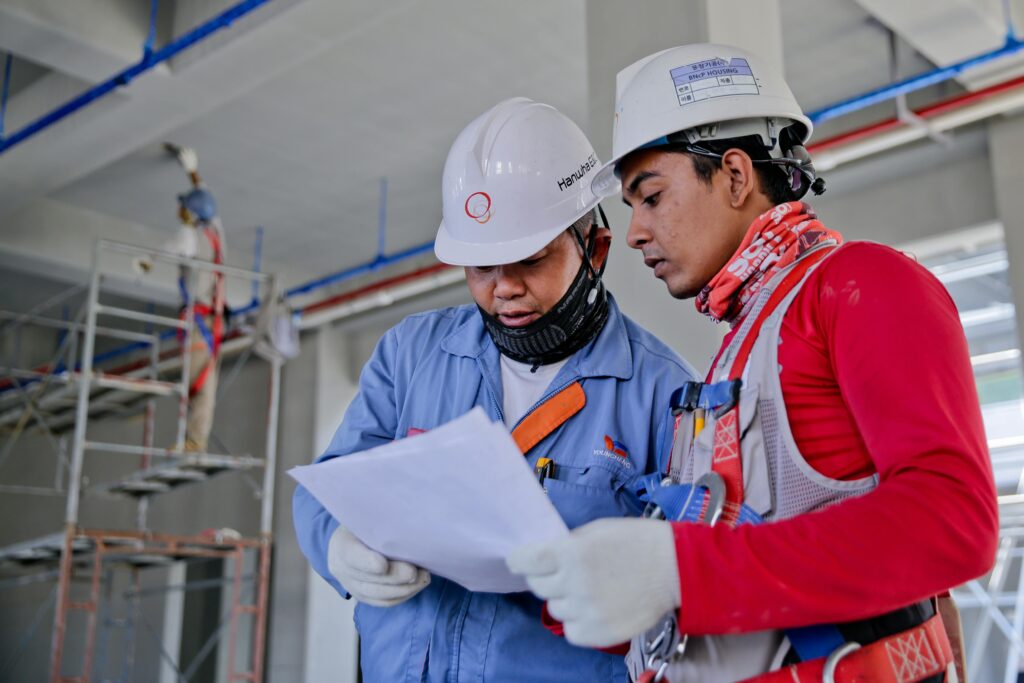Introduction to Industrial Engineering Education
Industrial engineering is a multidisciplinary field that blends engineering principles with business practices to optimize complex systems and processes. It focuses on analyzing, designing, and improving systems in various sectors, including manufacturing, healthcare, logistics, and service industries. The importance of industrial engineering lies in its ability to enhance efficiency, reduce costs, and improve quality, thereby ensuring that organizations operate at optimal performance levels. As businesses face increasing pressure to meet customer demands and navigate competitive markets, the role of industrial engineers becomes even more crucial.
Education in industrial engineering is essential for developing skilled professionals who are equipped to tackle the diverse challenges faced by modern industries. The curriculum typically encompasses both theoretical concepts, such as systems modeling, operations research, and statistical analysis, as well as practical applications, including project management, supply chain logistics, and process improvement methodologies. This dual focus ensures that students are not only knowledgeable about the underlying principles of industrial systems but also capable of applying their knowledge effectively in real-world contexts.
Moreover, industrial engineering education emphasizes the importance of problem-solving and critical thinking skills. Students engage in hands-on projects, internships, and collaborations with industry partners, which provide them with valuable experience and insights into the practice of industrial engineering. By bridging the gap between theory and practice, educational programs prepare graduates to be adaptable and innovative in their approach to addressing industrial challenges. Ultimately, a robust education in industrial engineering cultivates professionals who can contribute significantly to the advancement of their industries, making the field integral to achieving sustainable growth and operational excellence.
Theoretical Foundations of Industrial Engineering
Industrial engineering is fundamentally anchored in a robust theoretical framework that guides the education of aspiring engineers. This discipline draws upon a myriad of concepts rooted in mathematics, physics, and economics, which are essential in understanding complex systems and processes. One of the most critical areas of focus is systems optimization, where engineers learn to design and improve systems to achieve maximum efficiency and effectiveness. Theoretical models assist students in identifying variables that influence system performance and applying quantitative methods to optimize these parameters.
Operations research is another significant component of industrial engineering theory. This area encompasses various techniques that aid in decision-making and problem-solving in complex operational contexts. Tools such as linear programming, simulation, and queuing theory are integral in teaching students how to analyze and improve processes. By leveraging these methodologies, future engineers can simulate scenarios, determine the optimal usage of resources, and predict outcomes under various conditions.
Quality control principles also form an essential part of the theoretical curriculum in industrial engineering programs. Theories such as Statistical Process Control (SPC) and Total Quality Management (TQM) equip students with the skills necessary to maintain and enhance quality in production processes. These foundational theories ensure that students grasp the importance of maintaining high standards and considering customer satisfaction in their engineering decisions.
A strong theoretical foundation in industrial engineering education is paramount, as it equips future engineers with the knowledge and tools needed to tackle real-world challenges. By intertwining various theoretical concepts, industrial engineering programs prepare students to approach complex problems holistically, allowing them to balance innovation with practical application effectively. In conclusion, the theoretical aspects of industrial engineering serve as a vital stepping stone in developing proficient engineers capable of making significant contributions to their fields.
Practical Applications in Industrial Engineering
Industrial engineering plays a crucial role in optimizing complex processes and systems across various sectors. It combines analytical and practical skills, enabling professionals to enhance manufacturing efficiency, improve supply chain dynamics, and streamline workplace environments. The application of industrial engineering principles in real-world scenarios exemplifies the significant impact these theories have on operational performance.
Manufacturing processes often serve as a primary field where industrial engineering principles are readily applied. By utilizing methods such as Lean Manufacturing and Six Sigma, industrial engineers can identify and eliminate waste, improve quality control, and reduce production costs. These methodologies advocate for systematic analysis of workflows and resource utilization, ultimately leading to maximized productivity and efficiency. For instance, a case study involving a automobile manufacturing plant revealed that by implementing these principles, the production time decreased significantly, leading to increased output without compromising quality.
Another vital area where industrial engineering is relevant is in supply chain management. The integration of theory and practice in this domain allows professionals to design and manage supply chains that are responsive, resilient, and efficient. Simulation models and optimization algorithms are frequently employed to predict demand, manage inventory levels, and minimize transportation costs. These theoretical frameworks help in crafting strategies that align with market fluctuations while ensuring timely delivery of products.
Workplace optimization also falls within the purview of industrial engineering. By applying ergonomic designs and workflow analysis, engineers can create work environments that enhance worker productivity and safety. This application of theory focuses on designing processes that accommodate human capabilities and limitations, fostering a healthier and more efficient workplace. Companies that invest in such optimization often report improved employee satisfaction and performance.
Such hands-on experience in applying industrial engineering theories reinforces students’ theoretical knowledge and prepares them for the challenges they will face in their professional careers. Through internships, projects, and real-world case studies, aspiring engineers develop a comprehensive understanding of how to implement theoretical concepts in practical scenarios.
The Importance of Integrating Theory and Practice
In the field of industrial engineering, the integration of theoretical knowledge and practical application is essential for fostering a well-rounded educational experience. Theory provides the foundational concepts that underpin various engineering principles, whereas practical application allows students to engage with these concepts in real-world scenarios. This synergy between theory and practice is critical for developing effective problem-solving skills, as students learn to apply theoretical frameworks to complex challenges they may encounter in their professional careers.
When students are exposed to real-world applications of industrial engineering theories, they cultivate a deeper understanding of the material. For instance, simulations and hands-on projects enable learners to visualize how theoretical models operate within industrial contexts. This experiential learning not only enhances cognitive retention but also promotes innovative thinking. Students who can blend theoretical knowledge with practical experiences tend to generate more creative solutions, contribute to process improvements, and enhance overall productivity in their future workplaces.
Moreover, integrating both aspects of education equips students with the essential skills sought by employers. Today’s job market increasingly values candidates who can demonstrate both theoretical acumen and practical expertise. By balancing knowledge and application, industrial engineering programs prepare students to tackle real-world challenges effectively. This preparedness can significantly improve their employability, as graduates emerge with a strong understanding of how to apply their learning in various industrial settings. Ultimately, a curriculum that includes both theory and practice fosters not only academic growth but also equips students to succeed in a competitive job landscape.
Strategies for Balancing Theory and Practice
In the field of industrial engineering, achieving a harmonious balance between theoretical knowledge and practical experience is crucial for students’ success. Several strategies can be implemented to meld these two dimensions effectively, thereby enhancing the educational experience and ensuring that graduates are well-prepared for the challenges of the industry.
One prominent strategy is project-based learning, where students engage in real-world projects that require the application of theoretical concepts. By working on projects, students can better understand how theories translate into practical solutions. This method fosters critical thinking and collaboration skills, as participants often work in teams, mirroring workplace scenarios.
Internships represent another significant avenue for bridging the gap between theory and practice. They offer students hands-on experience within an industrial setting, allowing them to observe and engage in daily operations. Internships not only reinforce the theoretical knowledge acquired in the classroom but also help students build valuable professional networks and gain insights into industry standards and practices.
Laboratory work is also integral in many industrial engineering programs. Through experiments and simulations, students can apply theoretical principles in controlled environments, enabling them to witness firsthand the impacts of different variables and processes. This experiential learning enhances comprehension and retention of complex concepts.
Furthermore, collaborations with industry, such as guest lectures or joint research projects, serve to enrich the curriculum. These collaborations expose students to current industry practices and emerging trends, equipping them with relevant skills and knowledge that align with employer expectations.
Finally, incorporating case studies into the curriculum is a useful strategy. Analyzing real-world scenarios helps students connect theoretical concepts to practical applications. This method encourages analytical thinking and develops problem-solving skills essential for success in the field of industrial engineering.
Role of Faculty and Industry Collaboration
In the field of industrial engineering, the role of faculty extends beyond mere instruction; they serve as pivotal guides who help students navigate the intricate balance between theoretical knowledge and practical application. Faculty members are instrumental in designing curricula that not only cover foundational theories but also incorporate real-world challenges encountered in industrial settings. This holistic approach ensures that students are not only well-versed in theoretical concepts but also equipped to apply this knowledge in practical environments.
Collaboration with industry partners plays a critical role in enhancing the educational experience of industrial engineering students. By fostering partnerships with local industries, educational institutions can offer students unique opportunities to engage in internships, co-op programs, and project work that reflect the realities of the engineering world. Such initiatives facilitate a seamless integration of coursework with practical experience, allowing students to observe and participate in industrial processes firsthand. Moreover, these collaborations enable industry professionals to share their expertise, provide insights into current challenges, and unveil emerging trends relevant to the field.
Furthermore, faculty involvement in joint research projects with industry can lead to the development of innovative solutions that address real-world problems. This not only enriches the learning experience for students but also positions the educational institution as a contributor to industry advancements. As students engage with faculty and industry experts, they develop a deeper understanding of how theoretical frameworks can be applied in practice, thus reinforcing their problem-solving capabilities.
In conclusion, a strong partnership between faculty members and industry plays an essential role in equipping students with the skills necessary to excel in the field of industrial engineering. By prioritizing collaboration, academic institutions can create a learning environment that effectively integrates theory with practical applications, preparing students for successful careers in an ever-evolving industrial landscape.
Challenges in Balancing Theory and Practice
In the realm of industrial engineering studies, striking a harmonious balance between theoretical principles and practical applications presents several challenges for both students and educators. One major issue arises from curriculum constraints. Many academic programs emphasize a rigorous theoretical framework, often due to accreditation standards or traditional pedagogical approaches. This focus on theory can lead to a disconnect when students attempt to apply these concepts in real-world scenarios, making it difficult for them to see the relevance of their studies.
Additionally, a lack of resources can further exacerbate this disparity. High-quality laboratories and industry partnerships necessary for effective hands-on learning may be limited, especially in institutions with constrained budgets. This lack of access to practical tools restricts students’ opportunities to engage in experiential learning, which is critical for developing effective problem-solving skills in a practical context.
Moreover, students often find it challenging to derive applicable practices from complex theoretical concepts. The abstraction found in many theoretical models can be daunting, leading to frustrations when these models are applied in practice. This situation can create a barrier to understanding and applying industrial engineering methods effectively. Students sometimes struggle to bridge the gap between their academic knowledge and industry practices, which can impact their confidence and preparedness for the workforce.
To mitigate these challenges, several potential solutions can be implemented. Educators might consider incorporating more project-based learning opportunities that allow students to directly engage with industrial problems while applying theoretical knowledge. Partnering with local industries can also provide students with valuable insights and hands-on experience. Additionally, integrating case studies into the curriculum can help illuminate the applicability of theoretical concepts to real-world situations. By addressing these challenges, the field of industrial engineering can cultivate a more integrated educational experience.
Case Studies: Successful Integration Examples
Industrial engineering education has seen numerous successful integrations of theory and practice through various case studies that provide enlightening examples. These instances not only highlight the effectiveness of blending academic principles with real-world applications but also serve as a model for other institutions to emulate. One notable example comes from a university renowned for its industrial engineering program, which partnered with local manufacturing firms to create a collaborative project-based learning environment. Students were encouraged to work on actual industrial challenges, allowing them to apply theoretical frameworks learned in the classroom to solve practical problems faced by the industry.
Another case study highlights a unique internship program where students participate in hands-on engineering projects while still in their academic studies. This institution designed a summer program that embeds students directly into engineering teams within companies, enabling them to gain firsthand experience in operational settings. The feedback from these internships indicates that students felt more prepared for post-graduation challenges, as they could draw direct correlations between their theoretical knowledge and its applications in practical environments.
Furthermore, a comprehensive capstone project integrated continuous improvement methodologies into its curriculum. In this program, students identified inefficiencies within existing processes at partnering companies. By utilizing Six Sigma principles, they developed and implemented solutions, resulting in measurable improvements for the organizations involved. The combination of theoretical insights and practical execution not only enhanced student understanding but also strengthened ties between the institution and the local business community.
These case studies exemplify how industrial engineering education can benefit significantly from the integration of theory and practice. The methods utilized across these examples encourage active learning and promote an environment where students can engage with their material in meaningful ways. Ultimately, these approaches contribute to producing well-rounded graduates who are better equipped for the demands of the industrial engineering field.
Future Trends in Industrial Engineering Education
As the field of industrial engineering evolves, so too must the educational frameworks that support it. Future trends in industrial engineering education will likely emphasize a more pronounced balance between theoretical knowledge and practical application. This evolution is being driven by the rapid advancement of technology, shifts in pedagogical approaches, and changing industry expectations. Emerging technologies, such as artificial intelligence, big data analytics, and the Internet of Things (IoT), are reshaping the landscape of industrial engineering. Educational institutions will need to integrate these technologies into their curricula to ensure that students are equipped with the necessary skills to thrive in modern workplaces.
Moreover, the pedagogical shifts towards experiential learning and project-based education are gaining traction. Students are increasingly encouraged to engage in hands-on experiences that complement theoretical frameworks. Collaborations with industry partners will become essential, facilitating opportunities for internships and co-op programs that provide practical insights into the field. By fostering these connections, educational institutions can create a more dynamic learning environment where theory and practice intersect effectively.
Industry expectations are also evolving. Employers are looking for graduates who not only possess strong foundational knowledge but also have practical skills and experience. There is a growing demand for industrial engineers who can bridge the gap between theory and practical implementation. As a result, curricula will need to adapt to focus on relevant case studies, simulations, and real-world problem-solving strategies. Predictions indicate that educational programs will increasingly prioritize soft skills, such as communication and teamwork, to prepare students for collaborative environments in their future careers.
In conclusion, the future of industrial engineering education is poised to emphasize a harmonious integration of theory and practice. By embracing emerging technologies, shifting pedagogical methods, and responding to industry demands, educational institutions will play a pivotal role in shaping the next generation of industrial engineers.


